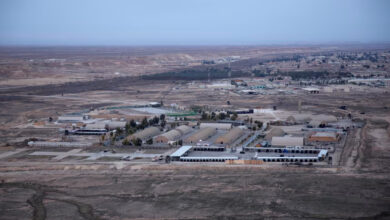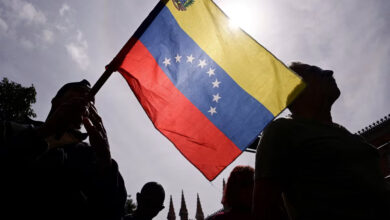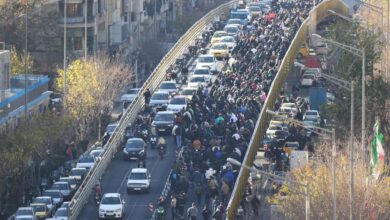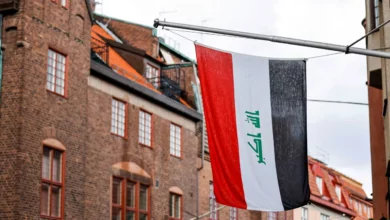Baghdad–Twelve people were killed on Sunday when gunmen detonated a bomb outside Iraq’s central bank and battled with security forces from the rooftops in what officials said could be a raid on the bank’s vaults.
At least one bomb and perhaps as many as four exploded as bank employees were leaving work, sending a thick plume of smoke over Baghdad after setting the bank’s generator on fire.
Troops and police came under fire from gunmen as they surrounded the bank in case the bombing was part of a plan to rob the institution of its stockpiles of Iraqi dinars and US dollars, said Baghdad security spokesman Major General Qassim al-Moussawi.
“It’s not clear to us whether this was a robbery or an attempt to cause destruction,” said Moussawi. “But we can definitely say they targeted the central bank.”
Moussawi declined to give a death toll. Police and Interior Ministry sources said 12 people died and at least 22 were wounded in the bomb blast and subsequent gunfight.
Recent weeks have seen a spurt of deadly gold market robberies and attacks by suspected Sunni Islamist insurgents as tensions simmer following an inconclusive election in March that produced no outright winner.
Many of the groups that took up arms after the 2003 US-led invasion to topple Saddam Hussein have turned to crime as the sectarian war and al Qaeda-led insurgency fade. Gunmen killed 14 people on May 25 in a raid on Baghdad goldsmiths and three on June 9 in an attack on a gold market in southern Basra.
A police source said Sunday’s attack on the central bank, which took place a day before Iraq’s new parliament was due to hold its first session, involved up to four bombs. Moussawi said one roadside bomb was used.
A bank official said the attackers did not gain entry to the central bank’s main building but were driven to the rooftops of neighboring buildings within its fortified compound. Local television said they were all killed by troops and police.
Overall violence in Iraq has fallen sharply since the height of sectarian bloodshed in 2006/07. But Sunni Islamist insurgents have sought to exploit the political uncertainty that followed the March 7 election through bombings and assassinations.
The number of civilians killed in violence each month has climbed slowly but steadily since the March vote.
A cross-sectarian alliance heavily backed by the once dominant Sunni minority won the most seats, but the main Shia factions have agreed to form the largest unified bloc in parliament, potentially giving them the muscle to claim the right to form a government.
Parliament convenes for the first time on Monday, more than three months after the election, but it is likely to still take weeks if not months for a deal on a government and a choice of prime minister.
The extended political vacuum coincides with a US plan to end combat operations in August ahead of a full US troop withdrawal by the end of 2011.




